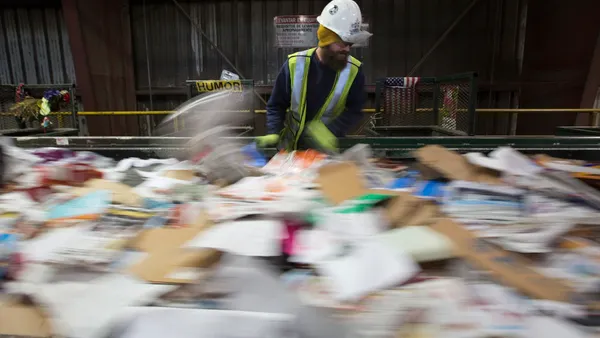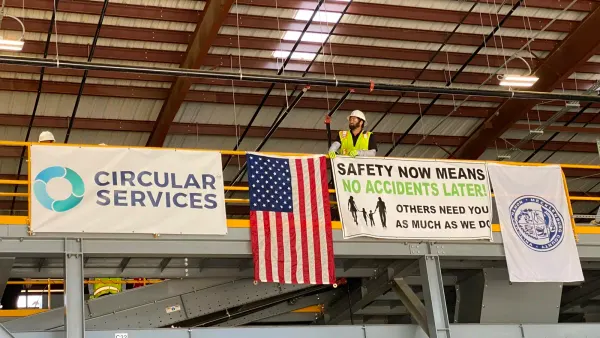Change is abundant in the recycling industry, especially in the residential space. Accepted materials are evolving and contamination reduction has gained prominence. Educational campaigns therefore have experienced a resurgence to re-teach consumers which items are accepted in curbside bins and eliminate bad habits.
Such campaigns are often targeted at localized audiences, except in a handful of states. This year, the Michigan Department of Environment, Great Lakes and Energy (EGLE) launched a large-scale campaign, "Know It Before You Throw It," to educate citizens throughout the state about proper recycling practices.
The campaign aims to change citizens' behaviors by focusing on issues common across all jurisdictions — such as only placing clean, dry materials in a curbside bin — while encouraging residents to review the exact materials accepted in their area.
The effort grew from a Michigan Governor's Recycling Council report that contained recommendations on how to achieve a goal of increasing Michigan's recycling rate from 15% to 30% by 2025. One of the council's core recommendations was a statewide education and engagement campaign to get more people recycling and more materials recycled.
Research helped EGLE and state leaders understand the state of recycling in Michigan, where it needed to go and what behaviors needed to change.
"The research was fascinating. Across all demographics, people support recycling [and] know about recycling. We didn't have to figure out how to sell recycling to people," said Jack Schinderle, director of EGLE’s Materials Management Division.
But despite the widespread knowledge, "we found that people who were recycling regularly were not always recycling correctly," said Jill Greenberg, EGLE public information officer.
Consequently, the department created a program targeted at educating Michigan citizens on how to increase the quantity and quality of their recycled materials. The $2 million initiative received a financial boost when Michigan legislators increased EGLE's funding from $2 million to an unprecedented $15 million this year.
EGLE's campaign stands out from others because of its break from traditional marketing techniques. It eschews seriousness in favor of humor to better engage citizens.
Commercials feature the Michigan Recycling Raccoon Squad, a six-member animal team that provides recycling information in simple terms. Each squad member specializes in one component of the recycling stream: glass, paper, plastic, cardboard, metal and "other."
"We tried to make it fun and informative to learn about recycling. We also wanted to make sure we could reach people across all demographics: children, students, parents, grandparents," Schinderle said.
The campaign launched this summer and already is considered a raging success. Public feedback has been overwhelming.
"I have not seen this kind of positive reaction to anything that I've worked on in 29 years of doing this work," Schinderle said. People are calling the department asking for the raccoons to do public engagement, from signing autographs to appearing at birthday parties. Simply put, he said, "people want more stuff with the raccoons."
Anecdotal observations indicate the program is moving the needle and creating recycling behavior changes. EGLE reports more online and social media public engagement than it has ever experienced.
"Our social media took off in ways we did not anticipate," Greenberg said. "[Residents] are asking great, deep questions and are really engaged."
That has challenged the department to respond correctly, thoroughly and quickly to all recycling questions it receives to keep the momentum going. But all the work appears to be paying off.
"When I go to recycling centers for promotional events, they’re getting an increase in recyclable products. They're seeing a change in their work," Greenberg said.
Stakeholders in other states have also contacted EGLE to learn how the initiative is structured and how to create something similar in their own area.
Given all the attention it's generating, the program creation makes sense. But it didn't always seem that way pre-launch. Doing an educational campaign in a way EGLE never had before was considered daring within the agency.
"Moving from a really technical way of distributing info — just the facts — and being comfortable taking this a different route... was a personal challenge," Schinderle said. "To get where you've never been, you've got to do what you've never done before. So we took a leap."
EGLE anticipates conducting surveys and other analyses next year to measure the campaign's success and adjust the messaging based on feedback, likely with information tailored to specific communities or regions in the next phase. But the raccoons aren't going anywhere.










